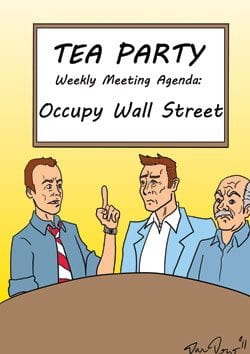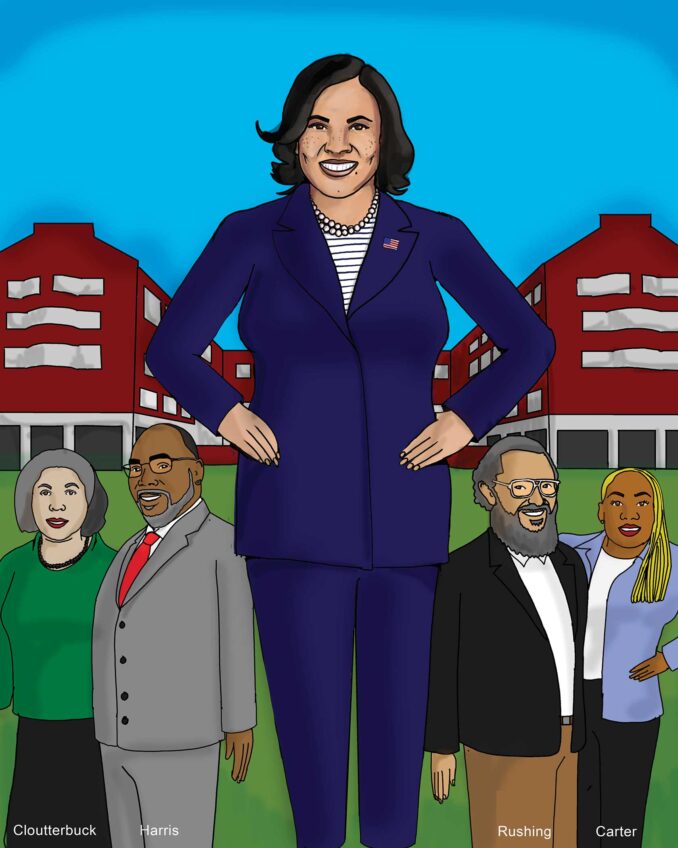
A gathering storm
| “Together we can!” |
Protesters continue to gather on Wall Street in New York, in Boston’s Financial District, in Chicago, Los Angeles and other cities to challenge America’s economic policies. The protests called “Occupy Wall Street” began on Sept. 17 and seem to be gaining momentum. The local version is called “Occupy Boston.”
So far the protests have no identifiable leader and no precise agenda. However, the theme of economic inequality is gaining momentum. Some participants identify themselves as 99 Percenters, those who do not share in the prosperity of the top 1 percent of taxpayers. According to an analysis by the Tax Foundation of 2008 tax returns, the top 1 percent of taxpayers received more than 20 percent of all taxable income.
This income disparity is as great as that experienced in the crash of 1929. And the high rate of unemployment (9.1 percent) creates a politically volatile mix because of its impact on the middle class. Some analysts predict that jobs will not be abundantly available in the future since the decline of the nation’s manufacturing base.
The number of manufacturing jobs reached a peak in 1979, but have been declining since then. By 2007 the country had lost 5.7 million factory jobs and the decline continues. Those jobs helped to create the country’s middle class. Joining the ranks of the unemployed are young college graduates who are nonetheless saddled with substantial tuition debt.
With social media, the young are mobilizing others to join their crusade, that is now primarily against the banks and unresponsive government officials. The attack against unions by conservatives has induced them to join forces with the 99 percent crowd. There is considerable speculation about how Tea Party members will interact with the more liberal Occupy Wall Street movement.
A July report of a poll by the Pew Research Center indicates that there might be more solidarity between the two groups than expected on some issues. Support for Social Security and Medicare was 87 and 88 percent, respectively. These are the two costliest entitlement programs.
As long as Occupy Wall Street remains non-violent, it is likely to continue and pick up momentum.
Misdirecting a good cause
Last week’s Roving Camera question was “Do you agree with the NAACP that childhood obesity is a civil rights issue?” Every respondent found some reason to agree. This indicates how an esteemed national organization can misdirect the thinking and attitudes of the people.
If black children are becoming obese primarily because of civil rights violations, then they have become victims. However, if their families have simply failed to provide healthier food and to require adequate participation in exercise for their children, then those black families have surrendered control of their lives.
Victims cannot be winners! It is no excuse to complain of the scarcity of reasonably priced fresh fruit and vegetables in Boston. For generations merchants have come to Haymarket near Faneuil Hall on Saturdays with carts of fruit and vegetables for sale at discount prices. Of course it is necessary to take the T to get there and you have to lug home heavy shopping bags filled with fresh produce.
A family eating healthy meals at home is less likely to suffer from obesity despite the processed food of questionable nutritional value that is conveniently available. Those families are winners and not victims, even as they campaign for healthier school lunches.






